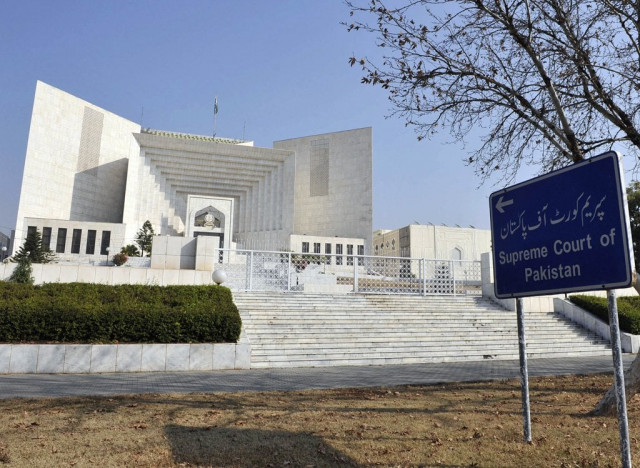SC acquits man after he served jail sentence
Hashmat Ullah, a businessman, was convicted by an accountability court

Hashmat Ullah, a businessman, was convicted by an accountability court
"The case in hand has appeared to us to be a classical case of a civil dispute based upon alleged breach of agreements for which remedies lied somewhere other than in a criminal court.
"This appeal is, therefore, allowed the conviction and sentence of the appellant recorded and upheld by the courts below are set aside and he is acquitted of the charge.
"We have been informed that the appellant has already served out his entire sentence of imprisonment and has since been released from the jail and, thus, no order needs to be passed regarding his release from custody," said 4-page verdict, authored by Chief Justice of Pakistan (CJP) Asif Saeed Khosa.
Facts of case
The appellant, Hashmat Ullah, was in the business of selling medicines and many people had invested in his business with an understanding that regular profits would be paid to them.
The appellant stately continued giving profits to such investors for some time but later on he stopped paying profits and allegedly refused to return the invested amounts to the relevant persons. It was also alleged that many cheques issued by him in favour of such investors had been dishonoured.
With these allegations, NAB filed a reference against him before Accountability Court-II, Balochistan, Quetta in 2007 and after a regular trial he was convicted by the trial court for an offence under section 9(a)(x) of the National Accountability Ordinance (NAO), 1999.
He was sentenced to four-year rigorous imprisonment and was fined besides confiscation of his house and his disqualification to hold any public office for a period of ten years.
Hashmat challenged his conviction and sentence at the Balochistan High Court through an appeal which was dismissed and his conviction and sentence recorded by the trial court were upheld and maintained. Later, he filed an appeal in the apex court.
Court findings
The apex court found that the basic ingredients of the offence under section 9(a)(iii) of the National Accountability Ordinance, 1999 are dishonesty and fraud through which misappropriation takes place or some property is converted to the offender's use or for the use of any other person and such property had initially been entrusted to the offender or was under his control.
"In the case in hand, the entire evidence produced by the prosecution was in respect of agreements having been entered into by some persons with the appellant for the purposes of investment in the appellant's business and it is written large on the record of this case that for some time after making of such investments the appellant had been paying profits to the investors."
The court noted that no evidence 'worth its name' had been brought on the record to establish that at the time when the applicant stopped payment of profits to the investors the appellant's business was still running in profit or the appellant was doing good business.
"No independent evidence had been produced by the prosecution to prove that stoppage of payment of profits by the appellant to the investors was a result of dishonesty or fraud on his part.
"The prosecution had also failed to prove that the appellant had converted the investors' money for his own use or for the use of any other person."
It said: "Even the provisions of section 9(a)(iii) of the NAO, 1999 speak of entrustment of property to the accused person before it is misappropriated by him and in the case in hand, as already observed , there was no element of entrustment available in the agreements between the appellant and the investors."
The order said the record clearly shows that the investors had invested money in his business and they had not entrusted any money to him for such money to be paid back to them in its original form.
"Apart from that in such cases initial dishonest intention on the part of the accused person is an important factor but the evidence brought on the record clearly negated the same because admittedly the appellant had been paying profits to the investors for some time.
"It appears that, as admitted by some of the prosecution witnesses themselves, the appellant's business had hit the rocks and such adversity had brought misfortune not only to the appellant but also to the investors in his business," it added.



















COMMENTS
Comments are moderated and generally will be posted if they are on-topic and not abusive.
For more information, please see our Comments FAQ